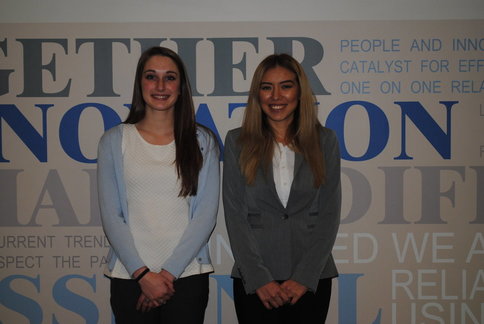
| February 2017, Vol.11, No.2 | Past issues | Subscribe | Printer Friendly | Advertise | eMagazine Archives |
Counties belonging to the ACCG Workers’ Compensation Fund and/or the ACCG Property & Liability Fund can earn significant discounts on their premiums if they participate in the Safety Discount Program. They can save 7.5 percent and 5 percent (to a maximum of $10,000) respectively if they meet all of the requirements of the program. The Safety Discount Program workbook, which is the same for both funds, outlines these requirements. The 2018 workbook and the associated forms are now available online and will be delivered to member counties in the near future. Note that the first page highlights the updates from last year. One improvement is a newly drafted Return to Work Policy that can be used to help employees injured on OR off the job with transitional employment in accordance with state workers’ compensation and federal employment laws. Click one of the links below to access the new 2018 Safety Discount Program information (to be implemented in 2017 for 2018 premiums): ACCG Workers' Compensation Safety Discount Program ACCG Property & Liability Safety Discount Program While saving money is important, the biggest advantage of a strong safety program is the health and welfare of the county employees, volunteers, citizens and others that interact with county government. Contact the ACCG risk control services (LGRMS) if assistance is needed in meeting the Safety Discount requirements since their services are included for Fund members: 678-686-6279 or 800-650-3120. Firefighters perform a valuable service to the communities they protect, and in doing so, they put their lives at risk. While firefighting has always been dangerous, the materials in burning buildings are even more hazardous than in previous years. Household contents previously made of natural wood are now made of pressed wood, synthetics and polymer-based components. When these materials burn, they produce toxic gases, and toxins in soot and ash can be absorbed through the skin. This can be dangerous to the firefighters’ health. While the exposures cannot be eliminated, they can certainly be reduced. One way to help protect the firefighters from the risks they face is equipping them with the appropriate personal protective equipment and the tools to properly clean them. There should be procedures for decontaminating gear at the fire scene as part of a process of gross decontamination. This could include scrub brushes and soap, medical gloves and wet wipes. An on-scene decontamination kit costs $10 to $20. Some agencies are able to provide a second set of clean gear, so that the dirty set can be swapped out immediately after a fire in order for the first set to be properly cleaned. Firefighters’ gear should be routinely cleaned since it becomes soiled during a fire. If done properly, that not only keeps the personal protective equipment in service, but more importantly, protects the firefighter from harmful agents. Unfortunately, many fire departments simply lack access to washer/extractor machines or the resources to send their gear out to specialized cleaning companies when needed. An in-house washer/extractor built specifically to clean the gear costs anywhere between $6,000 and $10,000, depending on how it is mounted and how many sets of equipment it needs to hold. Understandably, turnout gear is very slow to dry, so it is extremely helpful for firefighters to also have specially designed dryers that speed up the process. Dryers can cost between $1,000 and $5,000. While these washers and dryers are more expensive than household appliances that perform similar functions, they are specifically designed for firefighters’ gear. It is a reasonable expense for protecting the individuals that serve to protect the county. The appliances can be even less expensive if shared with other jurisdictions. If firefighters encounter diesel fuel, gasoline or other chemicals or biological agents, more advanced cleaning is necessary to remove the contaminants. An accumulation of substances could affect the firefighter’s health and could degrade the gear’s performance, so it is important to have the gear cleaned quickly and thoroughly. Are your firefighters properly equipped? For more information on Toxic Build Up in Firefighting Operations, read the recent article from ACCG’s risk control service. Each year, the Department of Community Affairs (DCA) conducts a voluntary survey of local governments to determine salaries and staffing levels for over 160 different local government jobs. Information that is generated from the survey is used to create PDF reports by category (i.e., public safety, public works, general and administrative, and elected officials) and is included in a searchable database. Of all the research requests received by ACCG from counties, the information that is gathered through this report is most popular. The deadline to file the report is June 30, 2017. Information on filing the report will be available on the DCA website once the 2017 reporting period has begun. Please make sure you use the 2017 reporting form. Access to the reporting forms and survey forms can be found here: https://www.dca.ga.gov/development/research/programs/ws.asp.
Martha Revelo recently received a Bachelors in Political Science at Georgia State University and is currently pursuing her master’s degree. Her main interest in the political field include public opinion and public policy. Throughout her educational experience, she has worked on different social science research projects on policy changes. As an intern at ACCG, her objective is to gain experience in policy and legislative advocacy. Lysette Cooksey is currently a senior at the University of Georgia, pursuing a dual AB/MPA degree, with a Bachelors in International Affairs and a Master of Public Administration. She plans to graduate in May with both degrees. A native of Marietta, she is excited to work in Atlanta with ACCG. After graduation, she hopes to move to Chicago and work in either government relations or local government. Over the course of their internships with ACCG, Martha and Lysette will assist the policy and research departments by tracking general legislation and the introduction of local legislation, attending committee meetings, surveying counties, conducting research relative to legislative issues, and reporting on floor action for both chambers of the General Assembly. Research projects this semester include tracking TAVT losses for counties, updating sales tax statistical information, collecting data on law enforcement salaries and compensation, compiling Census data, and other special projects as assigned.  Photo Courtesy of Polk County Bradley McFall, Kennesaw State University Student, Interns with the Polk County Finance Department Bradley McFall, a business management major at Kennesaw State University, completed an internship with the Polk County Finance Department as part of the 2016 Summer Georgia County Internship Program. Although he had no prior experience working within county government, Bradley started his internship with a desire to grow professionally and utilize his business experience. McFall was tasked with reviewing and updating the financial accountability policy and procedure for the county. To complete the project, he had to review county budget policies, work on the FY2016 final budget and the FY2017 budget, and apply the experience to an updated financial policy. This required McFall to quickly learn basic financial reporting and policy as it applied to county government. The project also allowed him to further develop his skill set in Microsoft Excel and obtain a greater level of detail in accounting. When asked about the favorite part of his internship, McFall noted that it was learning how an accounting department operates. He further stated that discovering how to review detailed financial documents was the most useful part of his internship and that the experience and skills he learned would certainly assist him in his future goals. Upon discussing his experience working with the finance department, McFall noted that he had a positive experience and that he enjoyed the work and the environment of the internship. He further stated that his experience would transfer to almost any other accounting department. When asked about his plans after graduation, McFall expressed that he would definitely consider a career in county government. For more information on GCIP, please visit the ACCG Civic Affairs Foundation website at www.civicaffairs.org. |
| ACCG, Georgia's County Association 191 Peachtree Street NE, Suite 700 Atlanta, GA 30303 phone: 404-522-5022 | fax: 404-525-2477 | ACCG.org |




